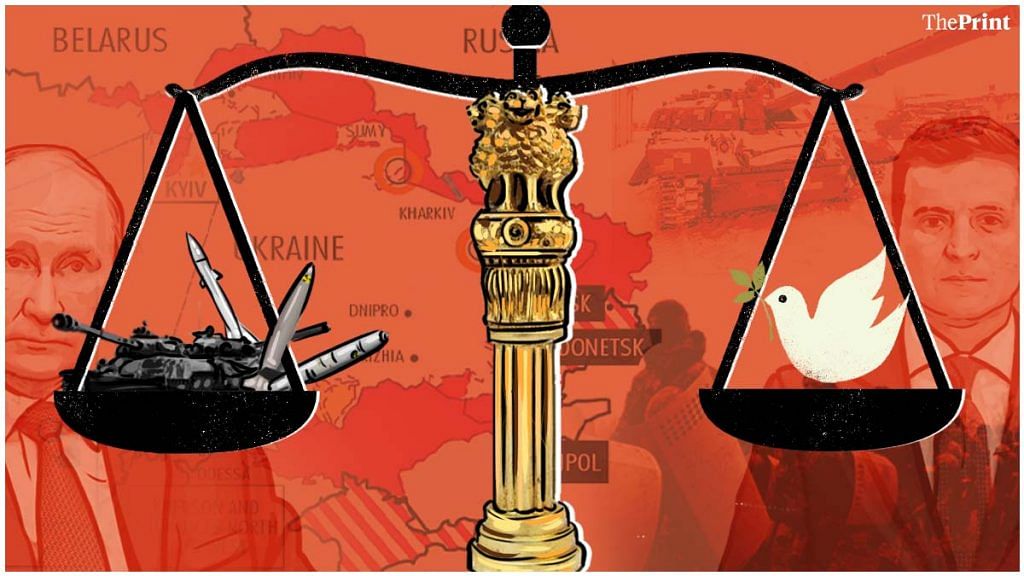Two quotations from the historian Arnold Toynbee, gleaned from random readings, have relevance to current events. The first says that civilisations die by suicide, not murder. Is that what Russia is bent on just now? It has bungled into Ukraine, and is being cornered by the Western alliance with an unprecedented unleashing of geoeconomic aggression.
The two issues are linked, but have to be viewed separately. Militarily, Russian forces now occupy about a quarter of Ukraine, putting Moscow in a good position to negotiate Ukraine’s neutrality and some territory. That Vladimir Putin, Russia’s president, is not yet negotiating these with any seriousness suggests that (rightly or wrongly) his reading of his military situation is not as dire as Western analysts have it.
The more serious issue for Russia is the geoeconomic isolation that the West has imposed on it through sanctions, which may not be lifted even if a deal is struck with Ukraine. In other words, the Western intent may be to permanently minimise the Russian strategic threat by taking away its European markets for oil and gas. After all, a US senator had once dismissed Russia as “a gas station masquerading as a country”!
Russia could find other customers, like China and even India with discounted sales. But Moscow will pay a price. Putin protests that the sanctions are a declaration of war, but he has deployed the same geoeconomic tactics against small countries in the Caucasus — as detailed by Robert Blackwill and Jennifer Harris in their 2016 book, War by Other Means: Geoeconomics and Statecraft.
They also note that financial sanctions work better than trade sanctions since financial flows are multiples of trade. So while it is true that the rouble has recovered, it is on the back of an unsustainable interest rate of 20 per cent. There is only one way in which Russia will emerge from this: As a shrunken economy and (short of nuclear war) as a diminished power.
Also Read: 3 ways to look at Russia-Ukraine war — starting with ‘Bad’ Putin
That brings up the second Toynbee assertion, in his 1952 Reith Lectures, that the West had committed “unpardonable aggression” against non-European countries. Western memory on this is conveniently selective, but that is understandably not so in the countries that suffered aggression. That explains the push-back from many of them, including India, against Western assumptions of the high moral ground, especially given the obvious hypocrisy of treating Indian oil imports from Russia differently from similar imports by Europe. The United States in particular finds it surprisingly hard to understand that the world can look different from New Delhi than it does from Washington DC, as it does from Berlin.
As Ian Morris, another British historian, wrote over a decade ago in Why the West Rules – For Now, the West was less dominant in 2000 than in 1900. This relative loss of power would continue because of the rise of China, with the interregnum likely to see an increasingly multi-polar world. The current weaponisation of geoeconomics will only hasten the transition by encouraging the setting up of alternatives to Western-based institutions like SWIFT (Society for Worldwide Interbank Financial Telecommunication), the ring-fencing of national data and creation of national digital platforms, and challenges to the sole supremacy of the dollar — as the chief economist of the International Monetary Fund has observed.
Today’s Western sense of having turned back the clock on relative decline flows from the perception that the liberal democracies have asserted their collective power. Yes, they have, but the forces that have been unleashed point to what Martin Wolf wrote in the Financial Times in mid-March: “A prolonged bout of stagflation seems certain…In the long term, the emergence of two blocs with deep splits between them is likely, as is an accelerating reversion of globalisation and sacrifice of business interests to geopolitics.”
There is nothing to celebrate here. And the question for India, as a middle or swing power with long-term external dependencies for energy and military hardware, is how to not let old friendships come in the way of cultivating new ones.
By special arrangement with Business Standard
Also Read: As globalisation is bombed, a ‘fortress economy’ is tempting, but India must know its limits
